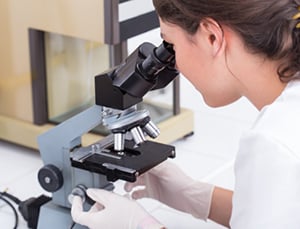When Shari Pimental underwent routine surgery two years ago to remove her gallbladder, she woke up in the recovery room and learned she had stage III ovarian cancer.
“It was definitely a shock. I ended up staying five extra days in the hospital to recover from surgery to remove the cancer,” says Shari, a Marist High school guidance counselor.
Dr. Kathleen Yang, Shari’s gynecologic oncologist at Willamette Valley Cancer Institute, thought Shari could possibly benefit from a clinical trial at WVCI for an investigational drug, classified as a PARP inhibitor that’s designed to block specific enzymes that cancer cells need to survive.
“They gave me a copy of the trial; I had a couple of our science teachers here, at the school, look at it, and I talked with them about it. I have a niece that works in oncology in Kansas City, and I also discussed it with her. They all said, ‘You totally need to do this,'” Shari says.
Once thought of as a last hope, clinical trials are now often a first line of defense, offering patients potentially life-saving treatment options years before they are available to the public, says WVCI medical oncologist Dr. Thomas Boyd.
“We now understand much more about the biology of each cancer, and we can actually pick drugs that are potentially already targeting susceptibility features within a particular type of cancer,” Dr. Boyd says.
As a member of the US Oncology Network, one of the nation’s largest research networks, WVCI offers these cutting-edge clinical trials locally.
“There have been studies carried out here that weren’t carried out anywhere else in the world, or studies that were completed here before they could even get started at the larger institutions,” he says. “Sometimes, smaller institutions, like WVCI, are nimbler and can get through the paperwork and processes of being able to do these studies in a much more efficient fashion.”
While Shari is participating in a randomized trial—meaning neither she nor her oncologist know if she’s receiving the study drug—tests show her cancer is in remission. Choosing to participate in the trial was the right decision for her, she says.
“My husband and I started this process thinking about what being a part of the clinical trial could do for me. And then we moved to, ‘Hey, if it works for me, how many other people could it potentially work for?'” Shari says.
Not every clinical trial drug works for every patient enrolled in a study, but those who participate are paving the way for cancer cures, and they are the first to benefit when the treatment is effective.
Learn more about clinical trials offered locally at WVCI here.



